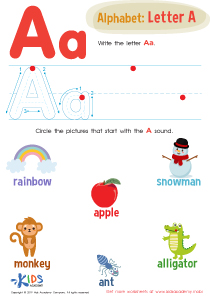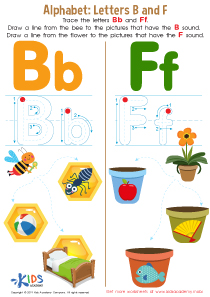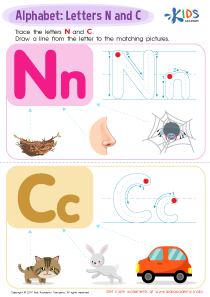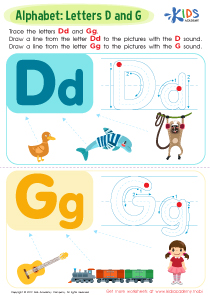Letter E Worksheets for Ages 8-9
3 filtered results
-
From - To
Explore the Exciting World of the Letter E with Our Engaging Worksheets, Perfectly Crafted for Ages 8-9! Dive into an educational adventure where young learners can enhance their understanding of the Letter E through a variety of stimulating activities. Our worksheets are specifically designed to captivate the interest of children aged 8-9, ensuring that they not only learn but also have fun in the process. From enchanting exercises that improve vocabulary and reading skills to entertaining puzzles that boost spelling and grammar, these sheets cover it all. Empower your child to excel with our Letter E worksheets, a delightful way to reinforce important language skills.
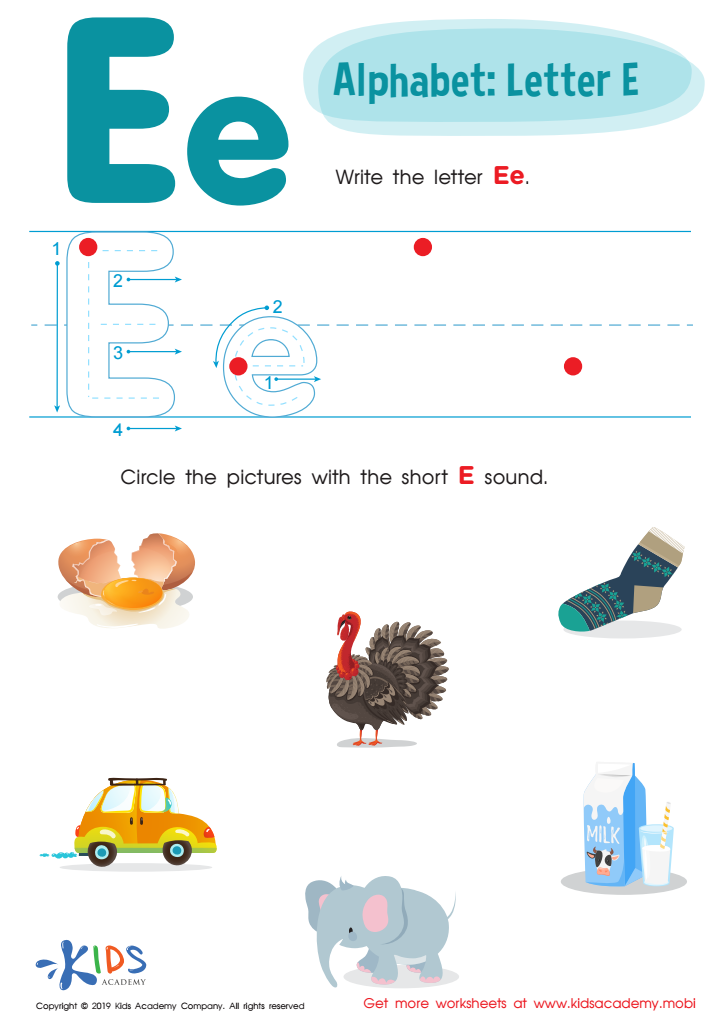

Letter E Tracing Worksheet
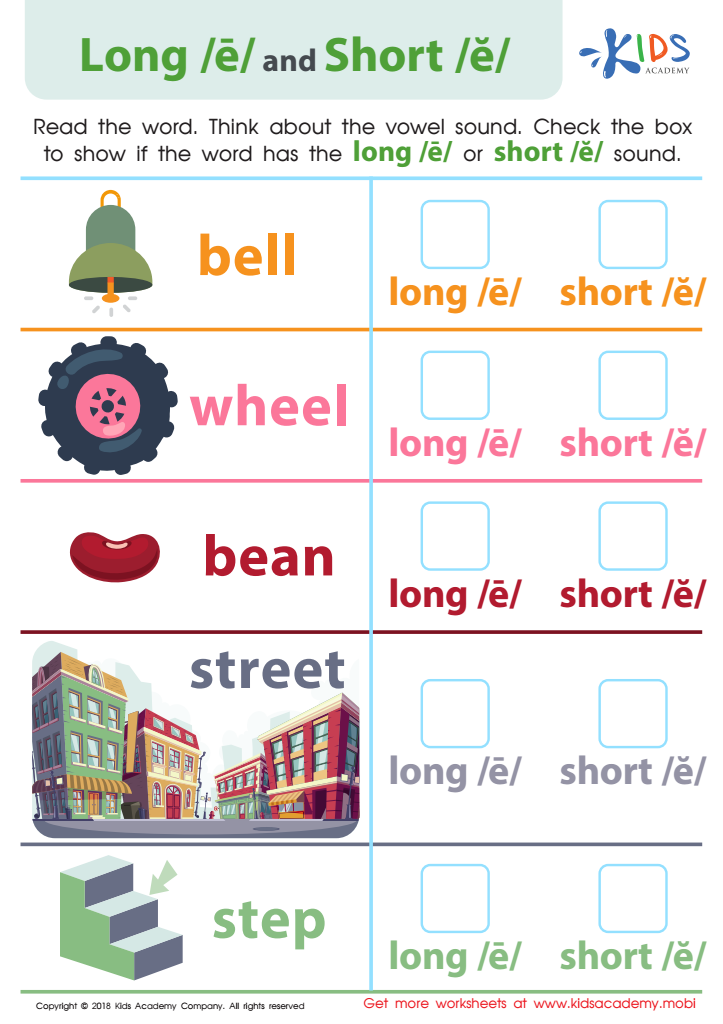

Reading: Long E and Short E Worksheet
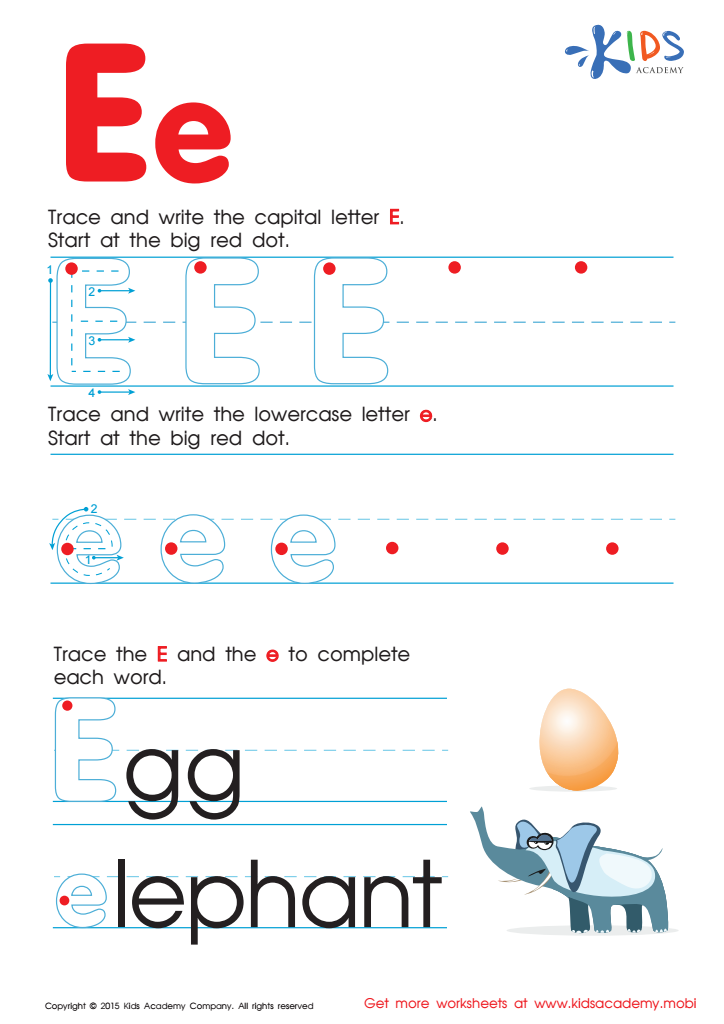

Letter E Tracing Page
Worksheets focused on the Letter E for Ages 8-9 serve as an essential educational tool, fostering not only literacy but also critical thinking skills in young learners. At this pivotal age, children are expanding their vocabulary and fine-tuning their reading and writing abilities. The Letter E worksheets are meticulously designed to engage students in this age group, offering them a mix of challenges and fun activities that promote a deeper understanding of the letter's usage and its various sounds.
One of the key benefits of these worksheets is their role in enhancing phonemic awareness. The letter E, with its multiple sounds, presents a unique opportunity for children to explore the complexity of the English language. Through exercises that emphasize the difference between short E and long E sounds, students become adept at decoding words, which is crucial for reading fluency.
Moreover, these worksheets encourage creativity and critical thinking. Activities like word searches, fill-in-the-blanks, and story creation not only reinforce the mechanics of the letter E but also allow children to apply their knowledge in diverse contexts. This kind of application is vital for cementing understanding and fostering a love for learning.
In conclusion, Letter E worksheets for Ages 8-9 are an invaluable resource in the educational journey of young learners. They build a strong foundation in language arts that supports academic success and promotes lifelong learning.

 Assign to My Students
Assign to My Students







